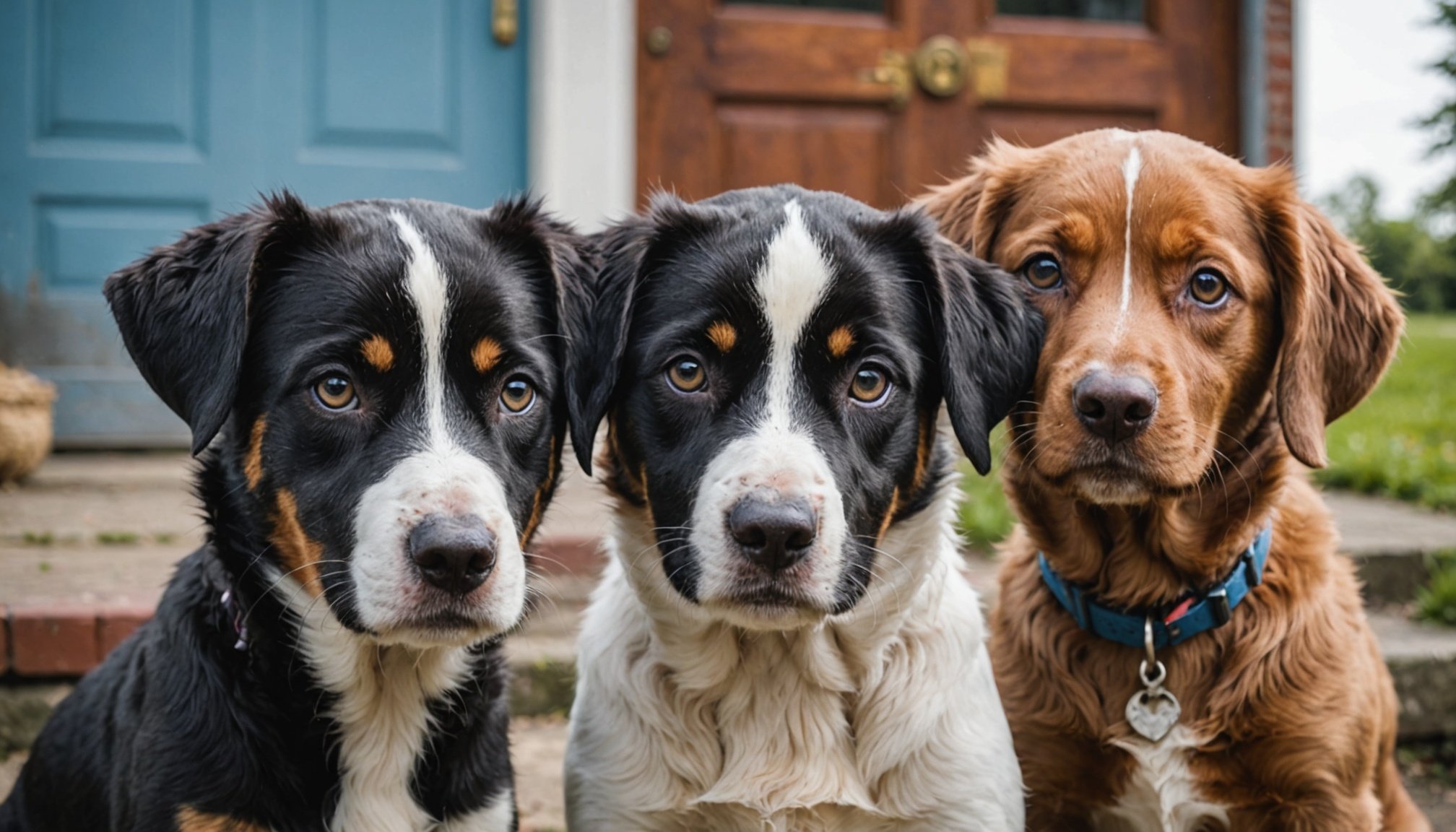Understanding Animal Welfare Laws and Regulations
Animal welfare laws in the UK are designed to protect the well-being of animals by setting standards and ensuring humane treatment. These laws are essential for promoting ethical practices and preventing cruelty. The main legislation includes the Animal Welfare Act 2006, which requires anyone responsible for an animal to ensure its needs are met, including a suitable environment, diet, and protection from pain and suffering.
For pet adoption agencies, understanding and adhering to these regulations is crucial. Compliance requirements ensure pets are rehomed responsibly, aligning with legal obligations and promoting trust with adopters. For agencies, this means performing thorough checks and maintaining clear records of adoption processes.
Also to discover : Key strategies for uk fintech companies to ensure compliance with anti-money laundering regulations
Failure to comply with these animal welfare laws can lead to severe consequences. Agencies may face legal penalties, including fines or suspension of operation rights. Moreover, non-compliance can harm an agency’s reputation, creating mistrust among potential adopters and stakeholders. Consequently, agencies must prioritize compliance to support animal welfare and maintain public confidence.
In summary, UK regulations serve as a cornerstone for ensuring high standards of animal care. By adhering to these laws, pet adoption agencies contribute positively to the welfare landscape, fostering a culture of responsibility and compassion.
Also to read : Creating a life-changing holistic health retreat in the uk: your ultimate step-by-step blueprint
Licensing Requirements for Pet Adoption Agencies
Navigating the licensing requirements for pet adoption agencies is crucial for ensuring regulatory compliance. To operate an adoption agency, various types of licenses might be required depending on your location. It’s vital to consult with local authorities to determine specific needs as these can vary significantly.
Initially, you may need a general business license, which grants the legal right to operate in a jurisdiction. In addition, a specific pet adoption license is often required to ensure that the agency meets local standards for animal welfare. Depending on the municipality, further permits related to zoning regulations, facility standards, and health certifications may also be necessary.
The process to obtain these licenses typically involves submitting an application, paying the necessary fees, and undergoing inspections by local authorities to demonstrate compliance with all regulations. Having a clear understanding of these steps and preparing necessary documentation can help streamline the process.
Once licenses are obtained, agencies must remember that they are not permanent. Pet adoption licenses usually require periodic renewal. This process often includes regular monitoring and inspections to ensure continued adherence to standards and regulations. Keeping abreast of any legal updates or changes in requirements is essential for ongoing compliance and successful operation of an adoption agency.
Best Practices for Animal Care and Management
Adhering to exemplary animal care standards is vital for ensuring optimal welfare and management of animals. Understanding and implementing these practices not only protect animals but also foster a healthier environment for them.
Facility Standards
Maintaining high-quality facility standards is crucial in animal care. Facilities must provide safe, clean, and suitable living conditions that meet all legal health regulations. Ensuring proper ventilation, appropriate temperature control, and sufficient space are foundational practices.
Health Checks and Vaccinations
Regular health checks are essential to monitor the wellbeing of animals. These checks should be conducted by qualified professionals to detect potential health issues early. Following recommended vaccination schedules is equally important to prevent the spread of infectious diseases, thereby safeguarding both animal and human health.
Behavioral Assessment and Enrichment
Conducting behavioral assessments is key to understanding the needs and conditions of animals. Such assessments help in creating tailored enrichment activities that promote an animal’s physical and mental well-being. Enrichment activities may include interactive toys, structured playtime, and problem-solving exercises, all aiming to enhance an animal’s quality of life.
Implementing these measures facilitates a comprehensive approach to welfare best practices, ensuring that animals are not only healthy but also thrive in a nurturing environment.
Funding Options for Starting a Pet Adoption Agency
Starting a pet adoption agency requires strategic planning, especially when it comes to securing funding sources. A diverse approach ensures stability and success.
First, consider traditional funding sources like loans from banks or financial institutions. However, as a non-profit, you may have access to specialised financial packages with more favourable terms.
Grants specific to animal welfare are a promising avenue. Organisations such as the ASPCA and Petco Foundation offer grants designed to support animal rescue operations. Applying for these requires a solid proposal that outlines your mission, goals, and the impact your agency will create. It’s essential to demonstrate a clear understanding of the requirements and be meticulous in your submission process.
Community fundraising and sponsorships are other vital methods. Engage with your local community through events, social media campaigns, and partnerships with local businesses. Creative initiatives, such as pet-themed calendar sales or community dog walks, can also boost funding while raising awareness about your agency.
Sponsorships offer a dual benefit. Local businesses can support a positive cause, and the adoption agency gains financial support along with enhanced visibility. A structured approach, including preparing sponsorship packages that clearly detail how businesses can benefit from their involvement, will optimise your chances of securing sponsors.
Community Outreach and Awareness Strategies
Building a strong connection with the community is crucial for pet adoption agencies striving for success. Community engagement forms the backbone of such efforts, ensuring that local residents are aware of and invested in the agency’s mission. To effectively communicate the importance of pet welfare, agencies can employ a mix of traditional and digital awareness campaigns. Utilising social media platforms and local events helps widen outreach and garners community interest and participation.
Launching volunteer programs can significantly enhance these outreach strategies. By involving local citizens directly, agencies offer a tangible way for individuals to contribute to the cause. Volunteers can assist in educating the public about responsible pet ownership, participate in events, and help run adoption fairs. This hands-on approach not only increases visibility but also strengthens the agency’s relationship with the community.
Effective communication is key in these endeavors. Developing a clear, consistent message about pet welfare helps ensure that the community understands the agency’s goals and the benefits of participation. Utilising storytelling through testimonials and success stories can make these messages more engaging and relatable. By building awareness and fostering community support through these strategies, pet adoption agencies can enhance their impact significantly.
Operational Management of a Pet Adoption Agency
Effective operational strategies and management best practices are critical for the smooth functioning of a pet adoption agency. These involve careful planning and execution of tasks, ensuring that the agency operates efficiently while meeting its goals.
Staffing and Training
The foundation of any successful pet adoption agency is its team. Recruiting skilled individuals is crucial. Implementing robust training programs ensures that staff members are well-prepared to handle the diverse challenges of pet adoption. Training should cover areas like animal care, customer service, and administrative duties.
Record Keeping and Documentation
Accurate record keeping is essential for agency governance. It involves maintaining detailed records of animals, including medical histories, adoption statuses, and behavioural notes. This helps in tracking progress and making informed decisions. Adopting a digital system can enhance efficiency and accessibility, reducing errors associated with manual documentation.
Policy Development
To ensure consistency and fairness, developing comprehensive policies is vital. These policies guide how the agency deals with adoptions, returns, and animal welfare standards. Clear guidelines create transparency for both staff and potential adopters, contributing to smoother operational management.
Implementing these operational strategies as part of the agency’s governance helps create a conducive environment for animals waiting for their forever homes. Such a structured approach not only supports daily operations but also builds public trust in the agency’s mission.
Resources for Further Learning and Compliance
Delving into animal welfare resources is crucial for ensuring that you’re aligned with the latest practices and standards in the care of animals. These resources include a range of legal documentation that outlines the obligations and requirements one must adhere to when involved in animal welfare activities. Familiarising yourself with these documents helps in fully understanding the regulatory landscape.
When considering adopting a pet or starting a pet adoption agency, exploring case studies of successful pet adoption agencies is incredibly beneficial. These case studies provide real-world examples and expert advice, often including insights into overcoming challenges and implementing best practices effectively. Reviewing such material can offer educational materials that enrich your understanding and decision-making process.
Expert insights from animal welfare professionals are invaluable. Their opinions provide depth, grounded in years of experience and practical knowledge. Whether through seminars, interviews, or articles, these insights help bridge gaps in knowledge by addressing common queries and outlining strategies to enhance animal care and adoption success.
To keep abreast of ongoing developments, consider accessing government resources that frequently update regulations and provide guidelines on maintaining high standards in animal welfare. These avenues ensure that your approach remains informed and compliant with animal welfare laws.











